The limits of mysticism…
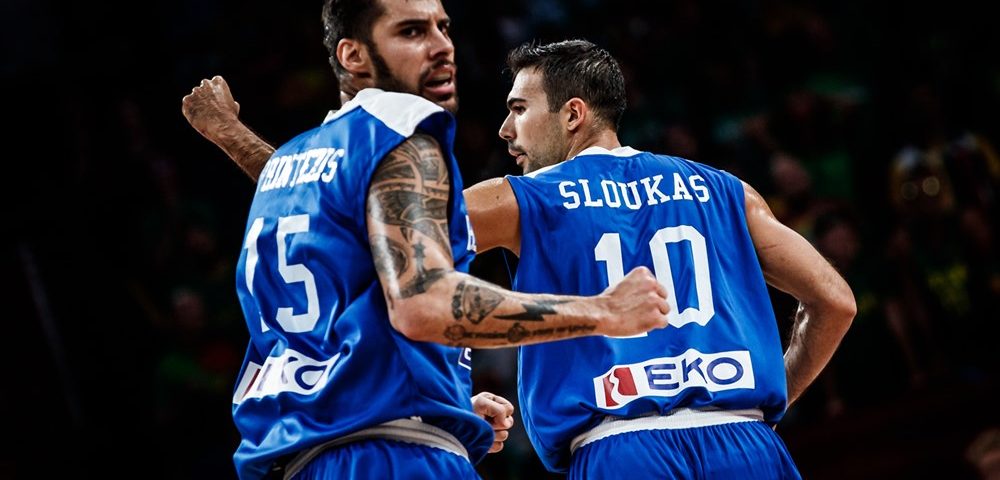

Led by the atmosphere of mysticism that surrounds the knock-out games of these competitions, our national team walked over Lithuania and it is called to return to the path of success and stay intact from the dive into the depths of the Russian mentality. Hoopfellas on what has come and what is yet to come…
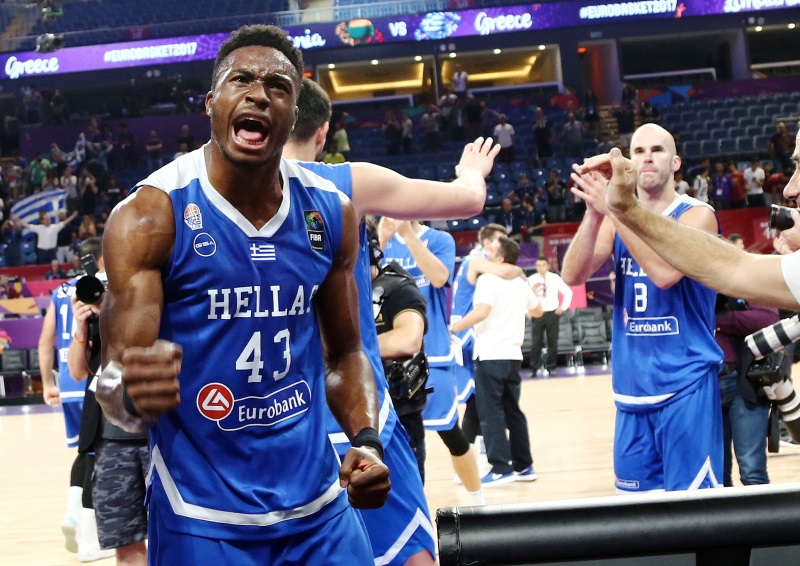
The feeling is back… We are living an early version of the anticipation of a game that can send us to the “Promised Land”, the land of medals in these international tournaments. We needed five games to show our good side and beat the anxiety of knock-out matches. Before the game against Lithuania, we asked of our team (directing our comments to our coaches) to surprise our opponents. They surprised us all, themselves included. It seems that faith is back with our players in these “one-breath” matches. We returned (rather, we became for one night) the child that does not come back from the playground, crying out that he has been beaten. We can now send other “children” angry at home (Reily the great…)
The big game on Wednesday is our chance. However, the same goes for our opponents. We are at a point when the most important thing (both at individual and team level) is to be able to “deliver” when the others cannot stand the pressure. Let’s see some statistics that will help us to better understand the performance of teams in this tournament, and we’ll continue with our analysis.


The approach we really had against Lithuania… (not exactly what you’ve read so far)

Before the game with Lithuania, we focused on how to stop the PnR offense of our opponents, given that our behaviour in this situation was not the best possible in the tournament until then. Our coaching staff moved towards a direction they had chosen from the first moment and they were lucky enough, due to the circumstances of the game and the way the game unfolded, to not have to change it. It wasn’t exactly Under, as many wrote… In reality, we chose when to play Under against Kalnietis (with the guard defending against him going under the screen), allowing him to shoot from outside, when we thought that the circumstances were to our advantage. The Greek team plays Kalnietis Under on the picks of the left side and most of the times of the middle lane. Starting from the right side of the court, on side picks, where the Lithuanian guard would go towards the centre of the key with a left dribble, though which his off dribble outside execution is more effective, we chose Over. Calathes did a really good job, being mentally prepared to defend with the right amount of intensity, and the exact amount of physicality that was needed to wear him down, and he had a great level of concentration. In two cases we played ICE on their side picks (once with Mantzaris and once with Calathes), aiming at keeping the ballhandler away from screens, but this wasn’t our main tactical approach, as we had written here, in Hoopfellas, before the game. Our view was that we should totally deny the Lithuanians the middle lane, either through a press defense (thus sending the ball to the wings, and showing them that they should start their action from there), or through a pure deny from Calathes, showing Kalnietis the side with his body stance (Claudio Coldebella was a master in that back in the day, great memories…) and we should then activate ICE.
Our choice was effective as the game went on, like a sign from above. The main reason why the Lithuanians got desperate and weren’t able to continuously produce through PnR offense was the very poor offensive night in outside shooting. I told you before half time… The main means to unlock our defense would be shooting behind the arc, not from their main playmaker, but from their snipers, who were waiting behind the arc, supporting the spacing of this offensive situation. Only this way could they change the reality that had been created on the floor, given that it would be very difficult to move the ball or attack against a team with our size. Coach Adomaitis tried to change (a very common choice) the guard that runs the Pick & Rolls, giving the ball to Juskevicius, Gecevicius, Grigonis, but it was clear that against our guards (especially Calathes, who is a ball hawk), these players could not get to their desired spots of the floor (as they simply do not have the advanced ballhandling, which made them easy to control), constantly throwing off the offense of “Lietuva”. At the same time, our team had forwards that could stick their faces to Kuzminskas, minimizing the situations where the Nicks player would put the ball on the floor and slash rhough the defense, after giving the screen to the guard in PnR. The three Lithuanian guards had 1/9 three-pointers, and Maciulis-Kuzminskas had 3/11… So, it’s easy to understand that the court became “smaller”, our defense won the battle of spaces and their PnR seemed really bad. A special reference to Kostas Papanikolaou, who did an excellent job in terms of covering on defense (especially when it was needed for him to cover the big man’s dive, as the baseline player). He was very good, he was well prepared. As we only allowed them (the only team that managed to do that) only 6 offensive rebounds, their offense and their spirit would break down.
Deep within the Russian mentality…

I could talk for hours about anything related to the term “Russian mentality”, as the sociological interest is, I think, equally great (at least…) for many people, with the result of tomorrow’s great battle. The Russian team has gone through various stages, trying to find its way and mainly its balance in the way things develop in basketball, with its opponent being the “demon” of introversion. The Russian (sociologically speaking, and in conjunction with basketball) lives in his own dimension. He refuses to follow the decadent (as he sees it) western neoliberalistic cultural model, whose impact destroys principles that are closely related to Russian mentality. Since Peter the Great, he finds it difficult to follow the western modernised standards, resulting from the lack of Protestantism in the tradition of this people (connect that to their coaching school and philosophy in our case). Individual responsibility and self-discipline are clearly absent due to their tradition and their character, insofar as the Western world has been used to. This is why Giorgos Bartsokas made such a big deal out of the difficulty he faced at Krasnodar in making Russian players defend…

The Russian is a dreamer. In Chechov’s work the heroes are only looking at the future. They are talking about what will happen in 150 years, not today. They are staring at the moon. Their main competitor is Galileo, not their colleague next to them. He also has a tendency for heroics, closely connected with the relation this people has with death. The climate and the environment of this country has marked the relation of the Russian with life and death, thus creating in all areas of their society (likewise in sports), distinguished by deep existential characteristics that lead them to heroics. This is deeply rooted in their collective identity, and it determines individual behaviours.
After the golden era of coach Blatt came their waning and going back to their “demon” of introversion. This is why Andrei Kirilenko taking over their basketball association was the best thing that could have happened for the Russians. His multicultural character and his open-mindedness could be the best basis to build something good. Greece is in their way in this tournament…
The antidote for Shved: Zone up in the Pick & Roll

Alexey Shved is at the moment one of the hardest missions a defense may be up against in this Eurobasket. He is in great shape from the beginning of the tournament (starting off with the winning shot against the Turks) and the fact that he is the leader of the Russian team has been beneficial for his mentality, as he is calmer, he has the time to allow the game to come to him, without forcing it. Shved is one of the most efficient players modern European basketball has had in terms of 1 on 1. His assets and the level of his technical knowledge, combined with his perception of basketball make up for a really strong package, not easily found on this side of the Atlantic. You may remember what I think from and older discussion that the Knicks should have invested in the European market (in Shved and Rodriguez) in order to solve several of their backcourt problems…
Stopping him, always in terms of FIBA Basketball, is more difficult that the “dominator of the middle lane” Goran Dragic, simply because Shved, although he doesn’t have the physical profile and muscular system of the Slovenian (one of the reasons he didn’t make it in the U.S.), is a “Hydra”, as he can put the pressure on a defense in many ways. What characterises his game is that he makes it difficult to be read, as he can go anywhere he wants with the ball, and he can also pass the ball very well. He is an advanced ballhandler, who can make any defender look like a fool with a series of dribbles, as, even though he is a shoot-first guard, he has great court vision and very good passing technique. He is big and long, he has the ability to “see” and execute passes over the defense, and send the ball (with skip passes that create half-court fast break starting from the side) from one side to the other, when his opponents gather around him, afraid of his slashing abilities. At the same time, his instant execution after dribble (great body control) in conjunction with his strong feet, make him a riddle that can’t be solved. Although he has the whole package, Shved didn’t make it (he didn’t even got anywhere near) the status of Alpha Dog in Europe and he didn’t have a great career in the NBA, simply because he never pushed himself to get out of his comfort zone and overcome his limits. He is very talented, but he is not hardworking. This is why he never became a “winner”. One might say he is too cool. The fact that at his best age, and after an impressive closing with the Knicks (14.8 points, 4.4 rebounds, 3.6 assists in 16 games) he preferred to go back to Khimki says it all, and it’s part of his “czarist charm”. Ok, the money was very good, but the carpet was set in the U.S., and the chance to win much more after a year and for many years to come was very good as well…

I have specific things in my mind about our defensive approach against this “wicked monk” of the Russian armada on our way to the semifinal, in order to feel him as less as possible in the Wednesday quarterfinal. Our ally is that Russia is not a great shooting team, and they do not have (both in terms of creation and execution) offensive skills spread across their roster. So, we can set easier targets, always having in our mind that (as with Lithuania) no extra players must be involved in their production, which will make our job much harder. Against Shved and his impressive ability to run Pick & Roll plays or 1 on1 plays, I would choose Zone Up, especially in high balls screens, which the Russian mostly use to enter the process of executing and the final part of their offense. The term does not mean a zone defense, it refers to a man-to-man defense. We must first know that we will be up against Horns and plays within a 5-out (especially when Mozgov in not on the floor and Vorontsevich-Zubkov are in the frontline) that aim to create spaces in the key and demand that we defend “together”, with a high degree of communication, so, even if we play small, we would have an advantage in the rebounds, and keep their slashing attacks on our backs. In a Zone Up approach, you “choose” to allow certain shots, and this version of the Russian team gives us this right. The strong side player (once Shved puts the ball on the floor and choose to dribble) has already taken a couple of steps back and he has his eye on the ball, in a special situation of man-to-man space defense, in order to stop him from dynamically driving to the heart of the paint (killing zone), and in this formation, also taking into account Shved’s passing skills, it is necessary to use length and a pair of strong feet on the baseline (Papanikolaou), as we are going to need one of our players to sprint on it (as well as have good close-out offense), in order to prevent them from having clean looks at our basket after the extra pass. Basically, once Shved starts dribbling and attacks, the players (apart from his personal defender) form a rectangle (within the context of man-to-man principles), and the player of the first line of the strong side (based on the Russian offensive playbook, this will usually be the “4” of the Horns format, or the other guard in a Spread Pick & Roll set) bearing the responsibility of stopping the dribble.
In any case, our goal is to not allow Shved to be involved in the final cooperation in the Russian offense. I repeat, it won’t be easy, as this is a guard with advanced ballhandling, a very good athletic package and great passing and scoring abilities. However, this is an approach in the right direction. We have Calathes, we have Papanikolaou, we have Thanassis Antetokounmpo… Mostly, we have the length, as a team, to deflect the ball and get into their passing lanes and break their communication. It’s a fact that at some point (not from the start, as this would speed up their adjustment) within this defense we will use trapping in their PnR, in order to get the ball out of his hands. I believe (even though our defense, the match against Lithuania aside, was not very good in terms of connections), that our roster has in its core the tools that will help us defend in situations with one less player in half-court against a team that doesn’t have a second playmaker.
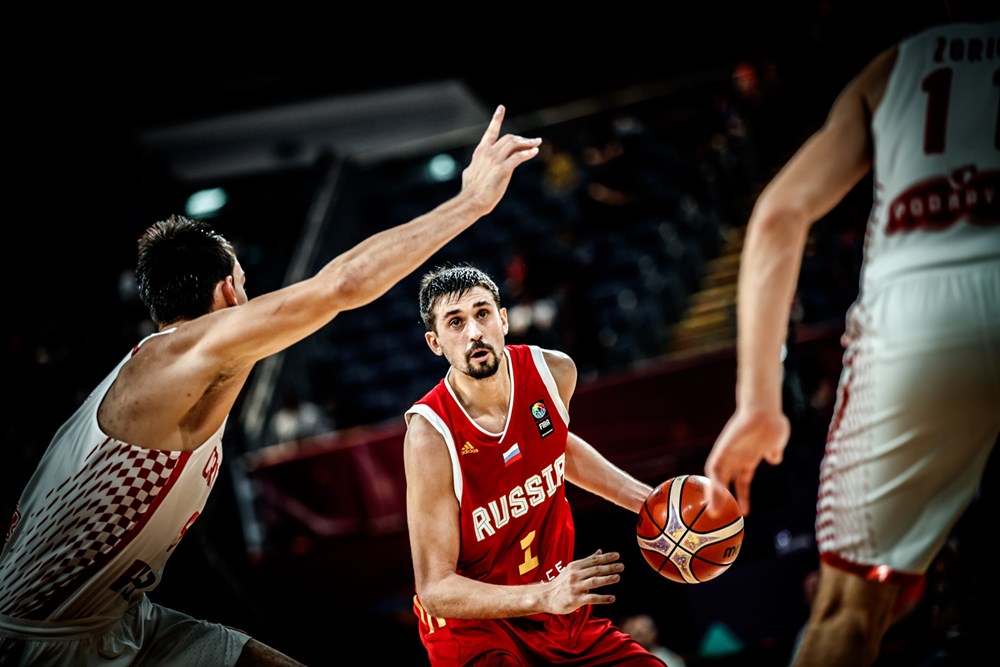
In the game against Russia, the Serbians chose several of the things we have talked about in terms of defensive approaches against talented guards, when trying to stop Shved. Some of them worked, some didn’t. They lost because they didn’t have the energy to execute properly on offense. Against the Khimki guard they tried ICE, but he used his excellent dribbling skills to go to the middle lane and execute when he got to (or close to) the free throw line. They also paid the price of overhelping when the Khimki star would dribble along the baseline. That didn’t work… His ability to effectively execute on defense (an asset of scorers that have had an actual role in the NBA) and to dribble past anyone, quickly cancelled any thoughts of pure man-to-man. Sale tried a similar type of defense to what we described above, and he had a better result, but the “easy” shots they missed, hurt his team (11 free throws, several shots close to the rim), which showed fatigue after the up tempo marathon against the Latvian team in the first game. Take a look and see what I mean…



Russia in total…

They are a team that got going from the start of the tournament, getting on the “chariot” we were talking about after the two great successes of their first two games (their win against the Turkish team in the dying seconds, their win against Serbia). It is very important in terms of good psychology to win two closed games in the beginning of a tournament against these opponents. They didn’t play great basketball after that, which reminded us of their ups and downs of their preseason, until the top-16 game, when their supremacy in terms of role distribution and proper function against the Croatians was a key factor for this matchup. Coach Bazarevic was never a great coach (basically, if we ever go down this rabbit hole, you ‘ll be surprised by some things, on the contrary I really like him as a person, and his backcourt duo with Sergei Babkov was unforgettable), but, as we have pointed out again and again, in these tournaments the effect of the coach is not as deep as in club competition, where the coaches can (and have the time) to really deepen their work.
The Russians play a specific kind of basketball, and they have properly distributed roles. As we pointed out before the start of the Eurobasket, it is important that the players of the main core of the team (Vorontsevich, Kurbanov, Fridzon, Antonov) have –in terms of responsibilities- similar roles to the ones they have at their clubs, with a slight change in what is related to various factors (e.g. the style of their game). Until now, their performance on defense is satisfactory, as the versatile character of the CSKA forward duo fits in very well next to the only “pillar” of the team, Mozgov. They play a low pace game with few possessions, an approach that is in harmony with their skills as a team, as they don’t have many scorers, shooters or playmakers. This is why they are trying to produce through cooperation in their offense, with 1 on 1 being the privilege of the one (Shved, and also the straight post ups of Mozgov).

With Shved at the “1” position…

After the first five games, the impressive 79.1% of the Assisted FG of Russia is second only to Spain, and it’s better (in this area) than the other two (apart from Spain) more properly structured offenses up to now (Latvia, Serbia). On the other hand, we have relied very much on 1 on 1 (23rd, second worse to Hungary with 58.7%). The table that follows say a lot…
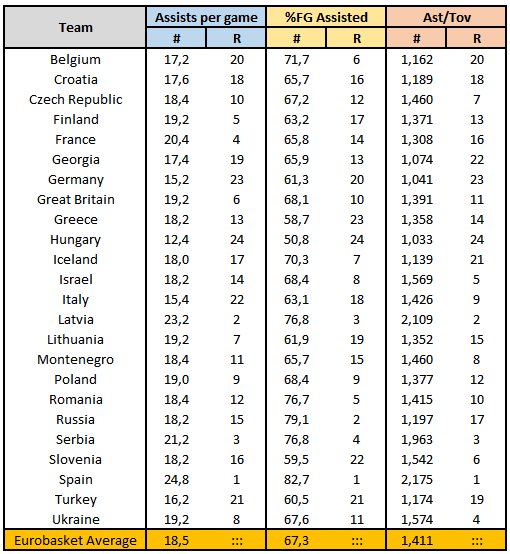
They are strictly playing what they know they can do, and what they have worked on. Contrary to the game against Lithuania, we may need to play small, activating small lineups, at times when we can’t capitalise on our size. Without Mozgov on the floor, the Russians rely mostly on small lineups, and bet on the ability of the CSKA duo to defend on the low post. This is why they are weak on rebounds (a chance to support our offense with extra possessions). A key factor for this quarterfinal will be (same as with Lithuania) the percentages of players such as Kvostov and Vorontsevich behind the arc. We have to be careful of Fridzon, who does not have 1 on 1 game, but he is an elite shooter. He also relies, just like the rest of the team, on the magic hands of Shved, who creates (either through PnR or through breaching the defense, where he is very strong, especially since they work with discipline on the extra pass). It’s quite possible that we will be up against press defenses on 4/4 (they quite often deploy a 2-2-1 Full Court Press with Kurbanov on the first line), which requires that we are ready for them, and turn it in our favour…
We have two Elite Euroleague guards…

The two knock-out games we played so far, helped us understand that our roster’s strong point, the way things turned out, is our backcourt. Calathes’ transformation changed things around on the balance of the two lines and showed us the way. Until now, maybe not undeservedly, our opponent’s scouting focused on our frontline, and the duo of Printezis-Bouroussis, but, as we went deeper into the tournament, our guards changed the image and the nature of our game. We have two elite EL guards in our machine, gentlemen, and we are happy to show that on the court of international tournaments. What Sloukas does on the floor reminds us of other times… We had said that this is the player that will lead our team in the tournament, and be the main creator of good basketball, but the Fener PG, has taken it even further, surpassing his own limits. His ballhandling puts tremendous pressure on defenses, as, provided that he remains aggressive, he will create chances for the rest of his teammates. Of course, our numbers will play a major role. Especially at the stage we are, and especially at a knock-out game. Just take a look at Calathes’ performance and see how it changed after a significant boost of confidence… We mustn’t be afraid to run in the quarterfinal. We are the team with the better quality, and we have the respective depth to take the game to more possessions and wear them down.
In total, the key to our offense will be to score from the centre of the key. The heart of the paint. This must be our main offensive goal. This is what we need to do to beat them. Either with straight post ups, or by entering the ball there, through Pick & Rolls, or cuts or offensive rebounds. If we feel comfortable scoring from the paint, we will have taken the first step. It’s a fact that by making them adjust their defensive formation, the good, clean looks at outside shots will come. In my humble opinion, this is where we must focus on our offensive behaviour. The Latvians hurt them a lot by going for the heart of coach Bazarevic’s defense, and they beat them fairly easy, even though they had 4/20 three pointers…
We have not succeeded yet…
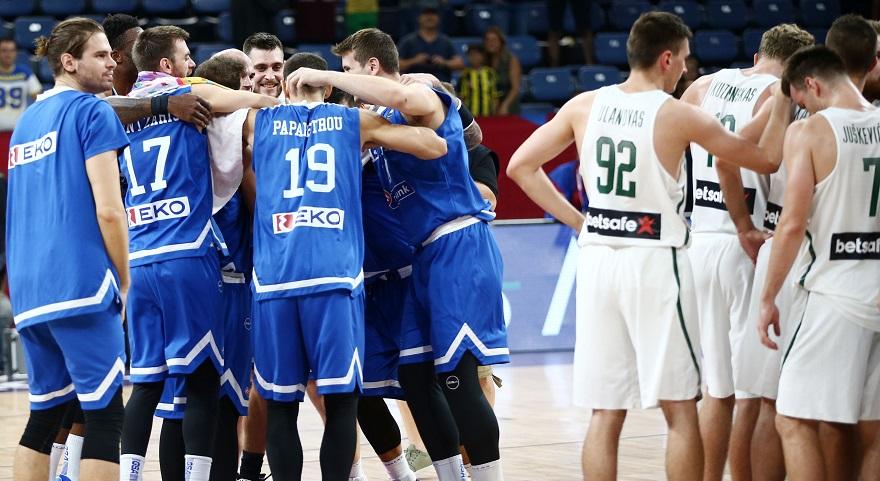
The enthusiasm both within and outside the team is justified, given that the poor performance of the first stage was replaced by an impressive performance in the top-16 knock-out game, but reality says that we haven’t achieved anything of importance yet. Our presence in the quarterfinals was never a success, as it wasn’t a success for France, Serbia, Italy, Spain and the rest of the traditional powerhouses of European basketball. We avoided the shipwreck of losing in the top-16 game, and we are walking on quarterfinal glass, aiming at taking small steps towards the end. We are good. It remains to be seen whether we will make the climb on the “chariot” we were talking about before this Eurobasket… Hoopfellas had said:
“Predictions aren’t very optimistic at this first stage. However, in tournaments with consecutive matches this can change. Provided that you will get (through a good period or a good game) a reference point that will put you on the “Cinderella” chariot (even if for Greece this term isn’t that common) of these tournaments at the end of the road”…
The timing is good, even though our opponents had a good performance as well. We had a solid defensive game, and we showed our character in a game of death, we shot the ball very well (very important in a tournament with consecutive games, at this stage in particular) and we have the players, on which we can rely in crucial moments, as we know that they can cope with the pressure. After all, wasn’t this our hidden weapon in the “recent glory years” both for our national team and our clubs…? “The Greek player can manage and function under pressure better than anyone in Europe”, Zoran Savic once said. It’s time for this generation to prove that they have inherited this privilege at an international level as well…


P.S.: I am dying to see Porzingis against Marc and Pau. Yes… Or maybe… will it be more fun to see the Spaniards for once trying to cope with the freak player they themselves created… ? (featuring Doncic as Frankestein’s monster).
P.S.1: FIBA World Championship 1994. I was so angry, dear Sergei, with you spoiling the USA-Croatia final. But… You beat them then, would you let them have their way now…?
Translated by: George-Orestis Zoumpos



